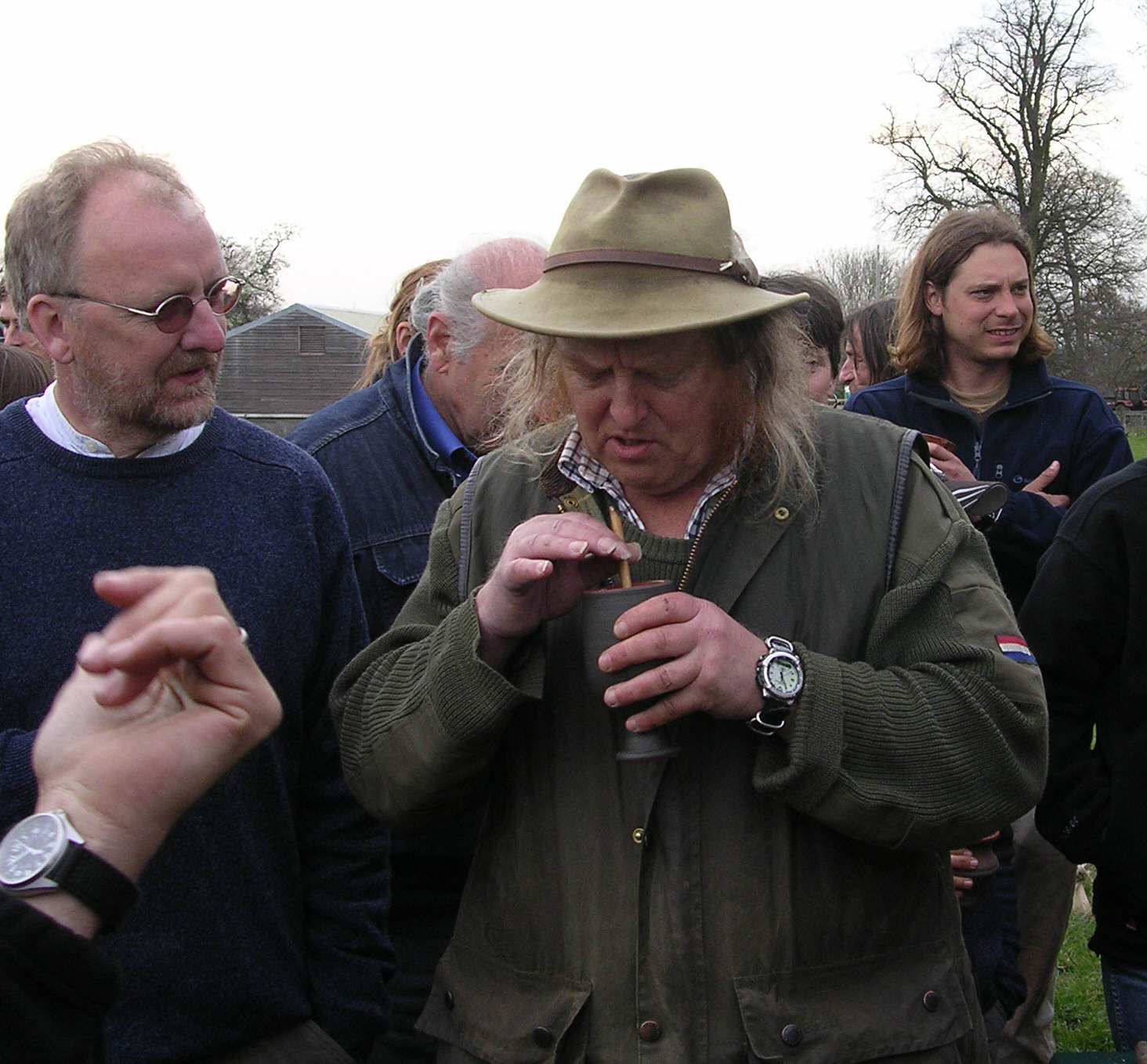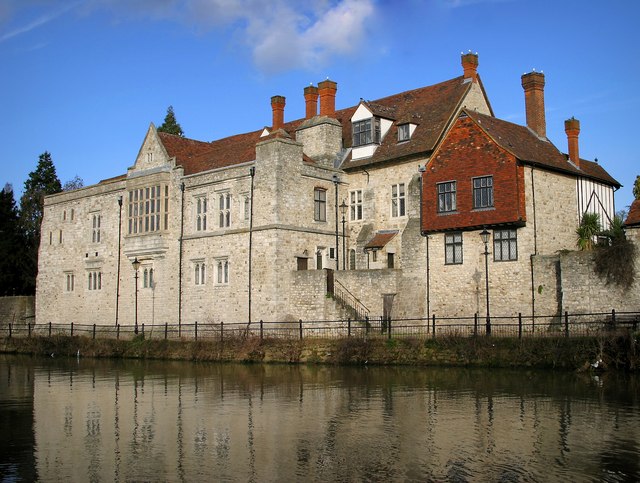|
Wessex Archaeology
Wessex Archaeology is a British company that provides archaeological and heritage services, as well as being an educational charity. Apart from advice and consultancy, it also does fieldwork and publishes research on the sites it surveys. The company has had a long association with the archaeological television programme ''Time Team''. Wessex Archaeology is a Chartered Institute for Archaeologists Registered Organisation. History Founded in 1979 as the Wessex Archaeological Committee, its name was changed in 1983 to the Trust for Wessex Archaeology. It was one of the first rescue archaeology units in the country, focussing on the numerous sites in and around Salisbury Plain. In 2005, it was renamed Wessex Archaeology Limited, trading as "Wessex Archaeology". Since the advent of developer-funded archaeology with PPG 16 and its successor, PPS5, it has expanded its commercial operations across the UK with offices in Maidstone and Sheffield. WA opened its Scottish office in Edin ... [...More Info...] [...Related Items...] OR: [Wikipedia] [Google] [Baidu] |
Charitable Organization
A charitable organization or charity is an organization whose primary objectives are philanthropy and social well-being (e.g. educational, Religion, religious or other activities serving the public interest or common good). The legal definition of a charitable organization (and of charity) varies between countries and in some instances regions of the country. The Charity regulators, regulation, the tax treatment, and the way in which charity law affects charitable organizations also vary. Charitable organizations may not use any of their funds to profit individual persons or entities. (However, some charitable organizations have come under scrutiny for spending a disproportionate amount of their income to pay the salaries of their leadership). Financial figures (e.g. tax refund, revenue from fundraising, revenue from sale of goods and services or revenue from investment) are indicators to assess the financial sustainability of a charity, especially to charity evaluators. This ... [...More Info...] [...Related Items...] OR: [Wikipedia] [Google] [Baidu] |
Rescue Archaeology
Rescue archaeology, sometimes called commercial archaeology, preventive archaeology, salvage archaeology, contract archaeology, developer-funded archaeology or compliance archaeology, is state-sanctioned, archaeological survey and excavation carried out in advance of construction or other land development. Other causes for salvage digs can be looting and illegal construction. One effect of rescue archaeology is that it diverts resources and impacts pre-planned archaeological work. Conditions leading to rescue archaeology could include, but are not limited to, highway projects, major construction, the flood plain of a proposed dam, or even before the onset of war. Unlike traditional survey and excavation, rescue archaeology must be undertaken at speed. Rescue archaeology is included in the broader categories that are cultural resource management (CRM) and cultural heritage management (CHM). Background Rescue archaeology occurs on sites about to be destroyed but, on occasion, ... [...More Info...] [...Related Items...] OR: [Wikipedia] [Google] [Baidu] |
Wessex
la, Regnum Occidentalium Saxonum , conventional_long_name = Kingdom of the West Saxons , common_name = Wessex , image_map = Southern British Isles 9th century.svg , map_caption = Southern Britain in the ninth century , event_start = Established , year_start = 519 , event_end = English unification , year_end = 12 July 927 , event1 = , date_event1 = , event_pre = Settlement , date_pre = 5th–6th century , event_post = Norman conquest , date_post = 14 October 1066 , border_s2 = no , common_languages = Old English *West Saxon dialect British Latin , religion = PaganismChristianity , leader1 = Cerdic (first) , leader2 = Ine , leader3 = Ecgberht , leader4 = Alfred the Great , leader5 ... [...More Info...] [...Related Items...] OR: [Wikipedia] [Google] [Baidu] |
Charities Based In Wiltshire
A charitable organization or charity is an organization whose primary objectives are philanthropy and social well-being (e.g. educational, religious or other activities serving the public interest or common good). The legal definition of a charitable organization (and of charity) varies between countries and in some instances regions of the country. The regulation, the tax treatment, and the way in which charity law affects charitable organizations also vary. Charitable organizations may not use any of their funds to profit individual persons or entities. (However, some charitable organizations have come under scrutiny for spending a disproportionate amount of their income to pay the salaries of their leadership). Financial figures (e.g. tax refund, revenue from fundraising, revenue from sale of goods and services or revenue from investment) are indicators to assess the financial sustainability of a charity, especially to charity evaluators. This information can impact a char ... [...More Info...] [...Related Items...] OR: [Wikipedia] [Google] [Baidu] |
Archaeological Organizations
Archaeology or archeology is the scientific study of human activity through the recovery and analysis of material culture. The archaeological record consists of Artifact (archaeology), artifacts, architecture, biofact (archaeology), biofacts or ecofacts, archaeological site, sites, and cultural landscapes. Archaeology can be considered both a social science and a branch of the humanities. It is usually considered an independent academic discipline, but may also be classified as part of anthropology (in North America – the four-field approach), history or geography. Archaeologists study human prehistory and history, from the development of the first stone tools at Lomekwi in East Africa 3.3 million years ago up until recent decades. Archaeology is distinct from palaeontology, which is the study of fossil remains. Archaeology is particularly important for learning about prehistoric societies, for which, by definition, there are no written records. Prehistory includes ove ... [...More Info...] [...Related Items...] OR: [Wikipedia] [Google] [Baidu] |
Phil Harding (archaeologist)
Philip Harding DL FSA (born 25 January 1950) is a British field archaeologist. He became a familiar face on the Channel 4 television series ''Time Team''. Harding trained on various excavations with the Bristol University Extra Mural Department and other bodies from 1966; he has been a professional archaeologist since 1971. Life and career Early life Born in Oxford on 25 January 1950 and brought up in Wexcombe, Wiltshire, Harding was educated at Marlborough Royal Free Grammar School in Marlborough. As a young boy, he became fascinated with the Stone Age. He learned flint-knapping from his uncle, Fred, and in only a few months became a skilled knapper, crafting many different hunting tools from pieces of flint. He made his first archaeological finds digging up his parents' garden, much to the annoyance of his mother, Elsie. In 1966, while still at school, he attended a training excavation by Bristol University Extra Mural Department in Fyfield and West Overton. ... [...More Info...] [...Related Items...] OR: [Wikipedia] [Google] [Baidu] |
Archaeology Data Service
The Archaeology Data Service (ADS) is an open access digital archive for archaeological research outputs. It is located in The King's Manor, at the University of York. Originally intended to curate digital outputs from archaeological researchers based in the UK's Higher Education sector, the ADS also holds archive material created under the auspices of national and local government as well as in the commercial archaeology sector. The ADS carries out research, most of which focuses on resource discovery, cross-searching and interoperability with other relevant archives in the UK, Europe and the United States of America. The Archaeology Data Service is listed in the Registry of Research Data Repositories re3data.org. History In the late 1990s a consensus developed in the field of archaeology that archaeological data in digital form was highly fragile due to both an inadequate understanding of technical threats to its sustainability and the lack of an infrastructure to preserve it ... [...More Info...] [...Related Items...] OR: [Wikipedia] [Google] [Baidu] |
Marine Archaeology
Maritime archaeology (also known as marine archaeology) is a discipline within archaeology as a whole that specifically studies human interaction with the sea, lakes and rivers through the study of associated physical remains, be they vessels, shore-side facilities, port-related structures, cargoes, human remains and submerged landscapes. A specialty within maritime archaeology is nautical archaeology, which studies ship construction and use. As with archaeology as a whole, maritime archaeology can be practised within the historical, industrial, or prehistoric periods. An associated discipline, and again one that lies within archaeology itself, is underwater archaeology, which studies the past through any submerged remains be they of maritime interest or not. An example from the prehistoric era would be the remains of submerged settlements or deposits now lying under water despite having been dry land when sea levels were lower. The study of submerged aircraft lost in lakes, r ... [...More Info...] [...Related Items...] OR: [Wikipedia] [Google] [Baidu] |
Maidstone
Maidstone is the largest Town status in the United Kingdom, town in Kent, England, of which it is the county town. Maidstone is historically important and lies 32 miles (51 km) east-south-east of London. The River Medway runs through the centre of the town, linking it with Rochester, Kent, Rochester and the Thames Estuary. Historically, the river carried much of the town's trade as the centre of the agricultural county of Kent, known as the Garden of England. There is evidence of settlement in the area dating back before the Stone Age. The town, part of the borough of Maidstone, had an approximate population of 100,000 in 2019. Since World War II, the town's economy has shifted from heavy industry towards light industry and services. Toponymy Anglo-Saxon period of English history, Saxon charters dating back to ca. 975 show the first recorded instances of the town's name, ''de maeides stana'' and ''maegdan stane'', possibly meaning ''stone of the maidens'' or ''stone of the ... [...More Info...] [...Related Items...] OR: [Wikipedia] [Google] [Baidu] |
Planning Policy Statements
Planning Policy Statements (PPS) were UK government statements of national policy and principles towards certain aspects of the town planning framework. In recent years they only applied to England. However, they still exist within the Northern Irish System. They were not legally binding, but the Planning and Compulsory Purchase Act 2004 required that they were considered by authorities preparing development plans, and may be treated as material considerations in the determination of planning applications. They had gradually been replacing the old style Planning Policy Guidance Notes (PPG). In December 2010 the Department for Communities and Local Government announced that all PPSs would be replaced by a single document, the National Planning Policy Framework (NPPF). A consultation draft of this new document was published on 25 July 2011. The final version of this document was published on 27 March 2012. It became a material consideration in planning matters on publication. It rep ... [...More Info...] [...Related Items...] OR: [Wikipedia] [Google] [Baidu] |
Developer-funded Archaeology
Rescue archaeology, sometimes called commercial archaeology, preventive archaeology, salvage archaeology, contract archaeology, developer-funded archaeology or compliance archaeology, is state-sanctioned, archaeological survey and excavation carried out in advance of construction or other land development. Other causes for salvage digs can be looting and illegal construction. One effect of rescue archaeology is that it diverts resources and impacts pre-planned archaeological work. Conditions leading to rescue archaeology could include, but are not limited to, highway projects, major construction, the flood plain of a proposed dam, or even before the onset of war. Unlike traditional survey and excavation, rescue archaeology must be undertaken at speed. Rescue archaeology is included in the broader categories that are cultural resource management (CRM) and cultural heritage management (CHM). Background Rescue archaeology occurs on sites about to be destroyed but, on occasion, may ... [...More Info...] [...Related Items...] OR: [Wikipedia] [Google] [Baidu] |

.jpg)


